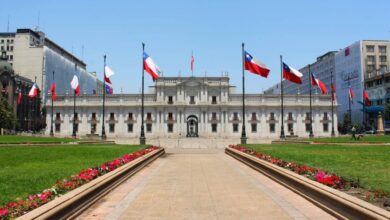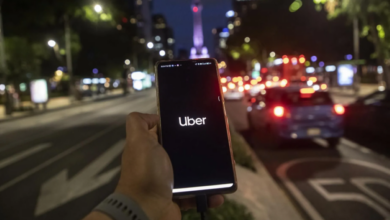Why did Trump’s new solar panel tariff draw criticism?
 United States President announced he intends to implement a significant tariff on imported parts needed to make solar panels
United States President announced he intends to implement a significant tariff on imported parts needed to make solar panels
Equipment used to construct solar panels will be taxed as much as 30% over the next four years, which the Trump administration claims should allow solar panel companies to grow domestically and become more competitive.
About 80% of the parts needed to make solar panels reportedly come from abroad, especially from countries in Asia. China’s share of global solar cell production skyrocketed from 7% in 2005 to 61% in 2012, a White House press release pointed out. The country produces 60% of the world’s solar cells and 71% of solar modules. The Trump administration wants that to change.
The new tariff -in line with Trump’s other protectionist “America First” economic policies- relies on the belief that a tax on goods coming from China, Taiwan, and elsewhere will even the playing field for domestic factory owners and encourage foreign companies to consider a move to the US.
The tariff will begin at 30% on imported solar cells for the first year, then drop to 15% by the fourth year. Additionally, it allows for the first 2.5 gig watts of unassembled solar cells to be imported without taxation.
*Critics have called the measure as the latest blow to the country’s clean energy industry.*
Critics have pointed out that, though the tariff helps factory owners, it cripples the solar panel industry as a whole and could cost the US as many as 23,000 jobs, according to the Solar Energy Industries Association. In a statement, the association also said the tariff could nullify billions of dollars in investments.
Asian countries have already begun to protest the tariff, which South Korea claimed breaks trade rules established by the World Trade Organization. China also released a statement expressing “strong dissatisfaction” with the announcement. “Together with other WTO members, China will resolutely defend its legitimate interests," officials in China said.
Environmentalists have expressed their concerns about the tariff as well. If solar panels are more expensive to manufacture, the development of renewable energy as a whole could suffer major delays compared to competing countries.
That is not a new concern under the Trump administration. From the beginning, it has prioritized the economy over the environment, pushing for the resurrection of the coal industry while opening the Keystone Pipeline, among other things.
Citing unfair treatment, Trump also announced last year that the US would be pulling out of the Paris Agreement -a loose alliance of countries dedicated to addressing climate change -that severely weakened the group as a whole and drew widespread criticism from the international community.
Trump has also reportedly waved numerous environmental regulations that will speed up the construction of the wall he promised to build along the country’s southern border. The president continues to promise that Mexico will pay for the wall despite Mexican officials’ claims the contrary.
In each of these scenarios, Trump is ruffling-feathers in the international community with the intention of giving the United States a more competitive, or “fair,” advantage. Whether that will come back to hurt him -and the country’s economy- has yet to be determined.
LatinAmerican Post | Max Radwin
Copy edited by Marcela Peñaloza

 United States President announced he intends to implement a significant tariff on imported parts needed to make solar panels
United States President announced he intends to implement a significant tariff on imported parts needed to make solar panels 




